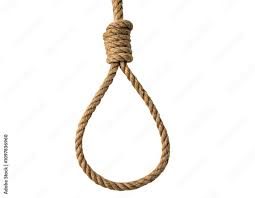A controversial Supreme Court ruling in Nigeria has ignited widespread outrage following the death sentence of Sunday Jackson, a farmer from Adamawa State, who fatally stabbed a Fulani herdsman in what many describe as an act of self-defence.
Jackson, a resident of Kodomti village in Numan Local Government Area, Adamawa State, Nigeria, was reportedly working on his farm in January 2015 when Buba Ardo Bawuro, a herder, allegedly trespassed with his cattle and attacked him with a knife.
According to court records and witness accounts, Jackson was stabbed in the neck and leg before he managed to wrestle the weapon away and fatally stab his assailant.
Despite the circumstances, the Supreme Court upheld Jackson’s conviction for murder on March 7, 2025, sentencing him to death by hanging.
The court ruled that Jackson should have fled after disarming his attacker rather than using the weapon against him.
The decision has drawn sharp criticism from human rights advocates, legal analysts, and social media users, who argue that the ruling sets a dangerous precedent for victims of violence.
Critics claim the judgment reflects a troubling trend in Nigeria’s justice system, where citizens defending themselves against violent attacks face harsh penalties, while their assailants often evade accountability.
Online campaigns under hashtags such as #FreeSundayJackson have gained traction, with users expressing disbelief and anger over the court’s stance.
One user wrote, “Instead of justice, the Nigerian court has sentenced him to death for murder.” At the same time, another warned, “If we say nothing, the Nigerian government will kill Jackson after they failed to protect him from terrorists pretending to be herdsmen.”
The case has also drawn international attention, especially in light of the United States’ designation of Nigeria as a “country of particular concern” for alleged tolerance of systematic attacks on Christians.
Observers argue that Jackson’s conviction reinforces perceptions of unequal treatment and raises questions about the Nigerian judiciary’s handling of self-defence cases.
As calls for clemency and judicial review intensify, legal experts and civil society organisations are urging the Nigerian government to reconsider the ruling and ensure that justice accounts for the realities of rural insecurity and the right to self-defence.



